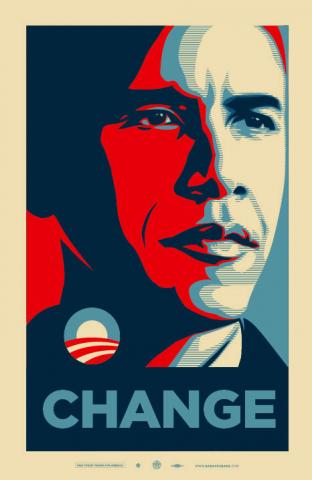“Few challenges facing America – and the world – are more urgent than combating climate change…Many of you are working to confront this challenge….but too often, Washington has failed to show the same kind of leadership. That will change when I take office.”
So began Barack Obama in a video message addressed to the Bi-Partisan Governors Global Climate Summit just weeks after the election. However, while he supports an 80 percent reduction of emissions by 2050 through a cap and trade bill, Obama’s nominations leave us uncertain of how the new administration intends to take on global warming.
The President-elect’s energy team marks a stark contrast from George W. Bush’s inertia on climate change. Consider Steven Chu, our next Secretary of Energy: As a leading voice in the science community on the dangers of excess CO2, he will be an advocate for the development of alternatives to limit fossil fuel consumption.
Likewise, former head of the Environmental Protection Agency Carol Browner will serve as Assistant to the president for energy and climate change. Her appointment makes additional strides toward an aggressive approach because she will coordinate agency climate change policies while balancing economic and national security considerations. Another strong pick is Lisa Jackson to head the EPA who is expected to play a critical role toward establishing cap-and-trade legislation. These nominations demonstrate that science will once again be taken seriously in government.
The science team looks equally promising. John Holdren as science advisor provides Obama with an international expert on climate and energy who has long advocated for firm government regulation of greenhouse gas emissions. Adding momentum, marine scientist Jane Lubchenco should guide the Commerce department’s focus on climate policy through her role as head of the National Oceanic and Atmospheric Administration.
Taking stock so far, the forecast looks bright, but do not declare victory quite yet. There are also signs that the administration could falter when it comes to dealing with global warming in the strongest possible fashion. In particular, Obama’s other high level picks suggest there may be serious impending battles in the White House over climate policy.
Consider economist Lawrence Summers’ appointment as director of the White House National Economic Council. The former Harvard President has taken vocal and controversial positions on the environment, describing the Kyoto protocol as “idealistic and visionary yet impractical, ultimately ineffective and perhaps even counterproductive because of the valuable political capital it consumes.” He will be the president’s senior economic adviser and supports a carbon or gasoline tax over cap and trade regulation. Summers’ stance on energy decisions and their financial impact may be at odds with others in the Cabinet.
Or consider that last week, Cass Sunstein was chosen to head the White House Office of Information and Regulatory Affairs, part of the larger Office of Management and Budget. While the Harvard law professor’s writings support a cap and trade system, his is the office that was accused of taking the lead on assaults to scientific integrity during the Bush Administration. As my colleague Chris Mooney points out, let’s hope he rejects the idea OIRA should be in the business of questioning the scientific determinations made by expert agencies.
And it’s not just the administration, it’s also Congress. While global warming may be the world’s greatest threat, the climate in Washington, DC is probably tepid at best toward taking on the massive challenge of emissions policy reform. Our looming economic crisis gets priority this year and change will most likely be achieved by way of developing green technologies and creating green jobs, not sweeping regulatory action. Emphasis will be placed on achieving less dependence on foreign oil for a myriad of purposes including national security and lowered energy costs rather than CO2 output.
Thus, the passage of a cap and trade bill poses many challenges for the immediate future. We may have the political capitol in the 111th Congress, but there exists a serious lack of will and House Speaker Nancy Pelosi (D-Calif.) has not committed to holding a vote in 2009. The conservative Republican opposition appears hopeful as James Inhofe (R-Okla.) recently remarked momentum really is on “the skeptics’ side of the issue.”
And so at the dawn of the Obama administration, there is much reason for hope. But in these uncertain times, we also have more reason than ever to work toward making sure we get the climate change policy we need.
This month we’re giving away FREE copies Coming Clean: Breaking America’s Addiction to Oil and Coal.
Go here to find out more details about DeSmogBlog’s monthly book give-away.
Subscribe to our newsletter
Stay up to date with DeSmog news and alerts






